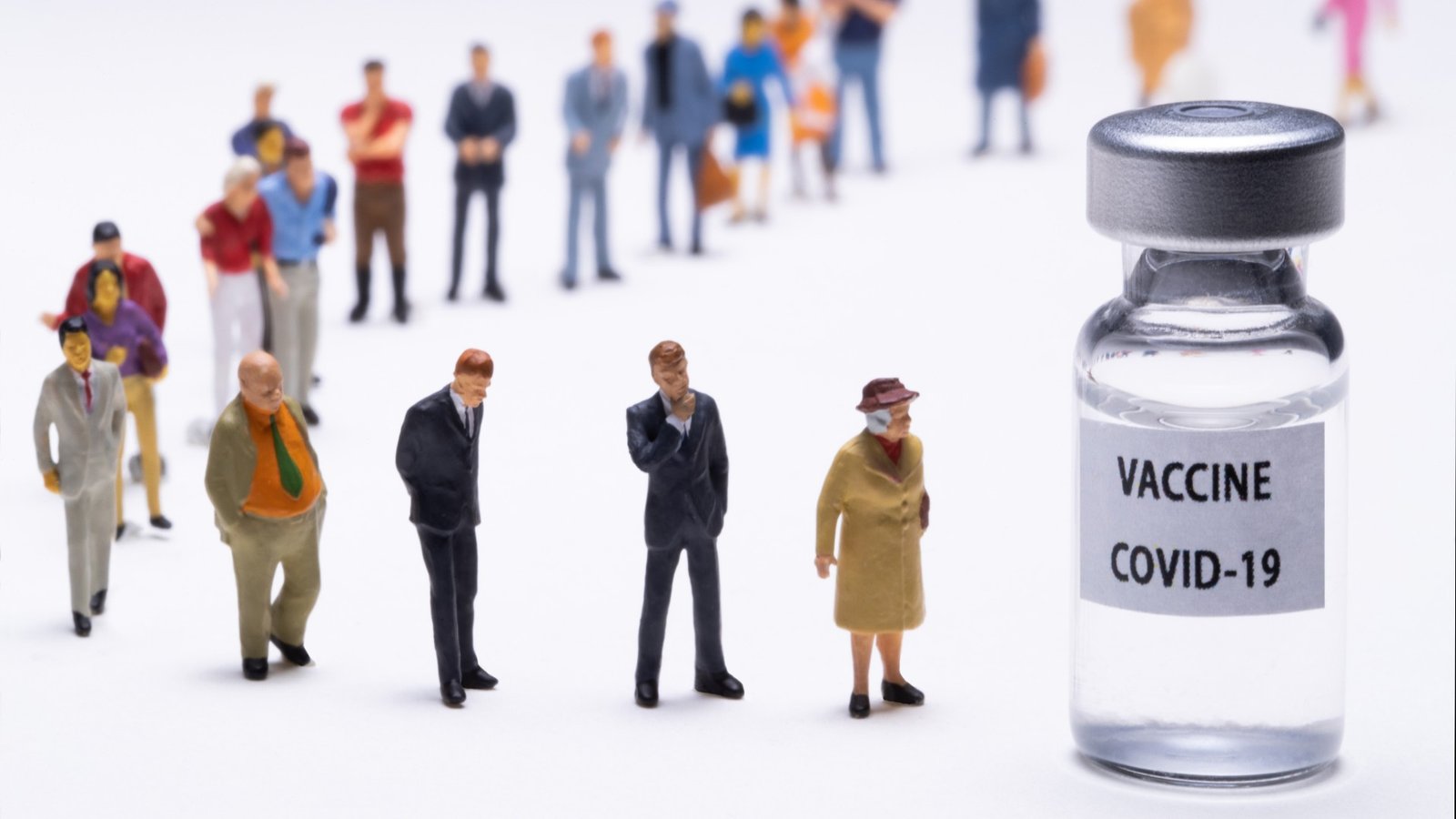Global Efforts to Stop the Spread of COVID-19 Undermined by Vaccine Side Effect Concerns
20 May 2021 | Thursday | Analysis

Image Source : CGTN
As the rate of people receiving COVID-19 vaccinations has slowed, a new survey of physicians has revealed that doctors are working hard to combat vaccine hesitancy, even among those who have already received their first dose. More than 72% of physicians surveyed said that patients continue to voice concerns over vaccine side effects. Still, others have reported ongoing misinformation discouraging people from getting vaccines. In addition, close to 30% of physicians reported encountering patients who have skipped their second dose due to unpleasant side effects of the first dose, or concerns over side effects.
Sermo’s COVID-19 Real Time Barometer also showed over half of physicians report their patients have requested a specific vaccine with a clear preference for the Pfizer-BioNTech vaccine, as 78% of physicians indicated it’s the most requested and Moderna following at a distant second (7%). In Europe, almost 93% of physicians reported Pfizer-BioNTech was the most requested.
Physician Views on COVID-19 Vaccines
Fielded May 4 – May 8, 2021, over 3,000 physicians around the world provided feedback, of which close to 40% have treated between 10-100 patients with COVID. The survey found most physicians are currently not optimistic that COVID-19 will be eradicated with 75% of physicians believing COVID-19 vaccine boosters will be required annually, and of that, 35% believing their patients will likely see it as similar to the annual flu jab.
This may be attributed to the ongoing vaccine hesitancy physicians reported. In addition to worries over side effects, physicians reported that they have also heard ongoing concerns about safety and efficacy (60%) or erroneous or misinformation, such as you don’t need a vaccine if you had COVID-19 (32%), the vaccine modifies your DNA (29%) or the vaccine contains a microchip (15%).
Physicians are countering the vaccination resistance mostly by discussing the risk benefit profile (80%) and the impact COVID-19 can have on others (61%), while 14% are connecting patients to community resources, such as peer engagement, but not finding success. “I am burned out with efforts to convince patients to get vaccinated,” said Charles LaTendresse MD, Family Medicine, U.S. “I try to get their reasoning for not getting the vaccine, but I can’t buy into what I hear.” he added.
“Our survey reveals that while sharing effective vaccinations and therapies worldwide is vital, it is not enough,” said Peter Kirk, CEO Sermo. “There is a tremendous urgency to counter misinformation and disinformation, and share which messages and approaches have been successful in convincing people to get vaccinated.”
COVID-19 and Neurological / Mental Impact
Data is continuing to emerge on the long-term implications of COVID-19, including the development of neurological or mental disorders, a topic extensively discussed at the recent American Academy of Neurology virtual meeting this year. While almost half of physicians thought it’s too soon to tell, a significant number of physicians (30%) believe COVID-19 is a neurotropic disease that can cross the blood-brain barrier and cause direct damage to the brain, rather than a respiratory illness that can have neurological side effects.
In addition, 30% reported the pandemic has helped patients with social anxiety disorder / social phobia, and depression / mood disorders (29%) that may arise from avoidance of social situations and other in-person encounters by allowing more time for self-reflection and personal development.
Most Read
- How Does GLP-1 Work?
- Innovations In Magnetic Resonance Imaging Introduced By United Imaging
- Management of Relapsed/Refractory Multiple Myeloma
- 2025 Drug Approvals, Decoded: What Every Biopharma Leader Needs to Know
- BioPharma Manufacturing Resilience: Lessons From Capacity Expansion and Supply Chain Resets from 2025
- APAC Biopharma Review 2025: Innovation, Investment, and Influence on the Global Stage
- Top 25 Biotech Innovations Redefining Health And Planet In 2025
- The New AI Gold Rush: Western Pharma’s Billion-Dollar Bet on Chinese Biotech
- Single-Use Systems Are Rewiring Biopharma Manufacturing
- The State of Biotech and Life Science Jobs in Asia Pacific – 2025
- Asia-Pacific Leads the Charge: Latest Global BioSupplier Technologies of 2025
- Invisible Threats, Visible Risks: How the Nitrosamine Crisis Reshaped Asia’s Pharmaceutical Quality Landscape
Bio Jobs
- Sanofi Turns The Page As Belén Garijo Steps In And Paul Hudson Steps Out
- Global Survey Reveals Nearly 40% of Employees Facing Fertility Challenges Consider Leaving Their Jobs
- BioMed X and AbbVie Begin Global Search for Bold Neuroscience Talent To Decode the Biology of Anhedonia
- Thermo Fisher Expands Bengaluru R&D Centre to Advance Antibody Innovation and Strengthen India’s Life Sciences Ecosystem
- Accord Plasma (Intas Group) Acquires Prothya Biosolutions to Expand Global Plasma Capabilities
- ACG Announces $200 Million Investment to Establish First U.S. Capsule Manufacturing Facility in Atlanta
- AstraZeneca Invests $4.5 Billion to Build Advanced Manufacturing Facility in Virginia, Expanding U.S. Medicine Production
News











